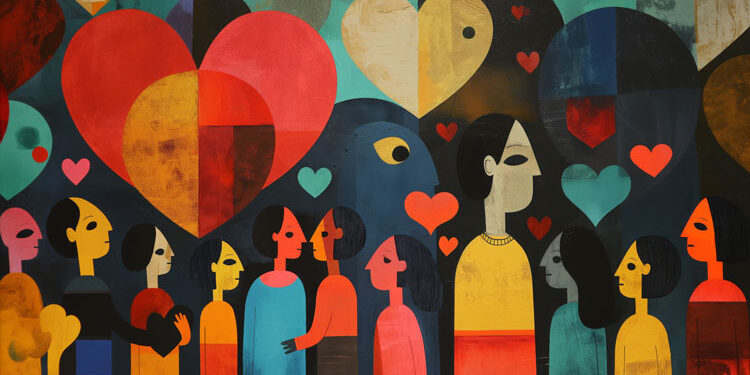Josetta (they/them) October 2024 update
The initial title and remit for my PhD was “Equity, Diversity and Inclusion (EDI) in Mindfulness” to look across the 9 protected characteristics listed under The Equality Act 2010 (race and ethnicity, religion or belief, sex, disability, sexual orientation, pregnancy and maternity, gender reassignment, age, marriage and civil partnership) [1]. However, having worked on the literature review, seen the lack of research on race and trans inclusion (Smith, Munt et al., 2016; Crane, Callen-Davies et al., 2023; Karelse, 2023), and being a Black and nonbinary mindfulness practitioner and EDI trainer, I have narrowed my focus to race and trans and nonbinary identities in mindfulness. Further, the challenging global and national events and discourses fuel the need to address these identities and attempt to increase awareness, understanding and ways of addressing race and trans-based inequity and injustice. Therefore, using a critical theory approach (Delgado and Stefancic, 2007; Warmington, 2020) [2] and mixed methods research (Cohen, Manion et al., 2017). I will be asking mindfulness practitioners questions to discover what these groups experience in mindfulness spaces, what influences attendance, what the barriers are, and what we can do to make mindfulness a more inclusive space. I am also interested in exploring creative research methods which may appeal to some people, such as audio and video diaries, and I’ll link my own experiences to the research with autoethnographic pieces (Muncy, 2010).
We’re likely familiar with the mental and physical health benefits of practicing mindfulness ranging from improving focus, resilience, calm, pain management, anxiety, connection to others and managing discrimination (Grossman, Niemann et al., 2004; Ferguson, 2016; Rowe, 2016; Crane, Callen-Davies et al., 2023; Callen-Davies, Bristow et al., 2023). These could be better accessed by Black and People of Colour (BPOC) and trans and nonbinary (TNB) people who experience minority stress and have higher rates of socio-economic inequity, mental and physical health issues (Watson-Singleton, Black et al., 2019) [3; 4] and neurodivergence in TNB people (Warrier, Greenberg et al., 2020) [5].
I am loving my PhD journey; the learning, (reading, research and attending workshops, conferences and seminars), sense of purpose and community. I’ve also just been tremendously buoyed up by a confidence boosting First Progress Review, which was not only successfully passed but promoted the narrowing of scope. So, now I begin my 3rd year of doctoral studies with my application to the ethics committee for approval to launch an online survey, followed by focus groups and interviews with current and potential mindfulness practitioners and tutors who are from BPOC and/or TNB communities. This ethical application process has been great for thinking about wellbeing and respect for my research participants, who may have experienced discrimination, and I appreciate anyone willing and able to participate. I will use my mental health background and group facilitation skills to create a safer space and offer sources of support to all who give their valuable time and energy to this much needed project. The benefits of taking part are to contribute to increasing diversity and inclusion in mindfulness and I will share links and info about free mindfulness resources and classes. And you might enjoy talking about your experiences.
Please email me if you have any questions or would like to take part in this study: j.malcolm.22@abdn.ac.uk.
I give gratitude to my wonderful first supervisor and (unofficial) mentor, Dr Graeme Nixon whose sad loss was a blow to all of us who were privileged to know and work with him; I send my love and condolences to his family, colleagues, students and friends. He is deeply missed and will always be an inspiration, joyful guide and motivating presence in our work.
Josetta (they/them), October 2024.
References
CALLEN-DAVIES, R.J., BRISTOW, J., GAZDER, T., GRIFFITH, G.M., NOORANI, Y. and CRANE, R.S., (2023). Mindfulness-based programmes and ‘bigger than self ‘issues: protocol for a scoping review. BMJ Open, 13(3), pp.1-8.
FERGUSON, M., (2016). Symposium: Mindfulness and Politics. 38(2), pp.201-205.
GROSSMAN, P., NIEMANN, L., SCHMIDT, S. and WALACH, H., (2004). Mindfulness-based stress reduction and health benefits: A meta-analysis. Journal of Psychosomatic Research, 57(1), pp.35-43.
COHEN, L., MANION, L. and MORRISON, K., (2017). Research methods in education. 8th ed. London: Routledge.
CRANE, R., CALLEN-DAVIES, R., FRANCIS, A., FRANCIS, D., GIBBS, P., MULLIGAN, B., O’NEILL, B., PIERCE WILLIAMS, N.K., WAUPOOSE, M. and VALLEJO, Z., (2023). Mindfulness-Based Stress Reduction for Our Time: A Curriculum that is up to the Task. Global Advances in Integrative Medicine and Health, 12.
DELGADO, R. and STEFANCIC, J., (2007). Critical race theory and criminal justice. Humanity & Society, 31(2-3), pp.133-145.
THE EQUALITY ACT, (2010). Equality Act 2010. UK General Public Acts. United Kingdom.
KARELSE, C. (2023). Disrupting white mindfulness: Race and racism in the wellbeing industry. Manchester: Manchester University Press.
MUNCY, T. (2010). What is Autoethnography? Making Sense of Individual Experience. In: Muncey, T., Creating Autoethnographies. London: Sage. pp.26-53.
MURRAY, R. (2022). Acting on the evidence: ensuring the NHS meets the needs of trans people. The Kings Fund. Available: https://www.kingsfund.org.uk/insight-and-analysis/blogs/ensuring-nhs-meets-needs-trans-people [Date Accessed 14 October 2024].
SMITH, S., MUNT, S. and YIP, A., (2016). Cosmopolitan dharma: race, sexuality, and gender in British Buddhism. Boston: Brill.
RALEIGH, V. (2023). The health of people from ethnic minority groups in England.
The Kings Fund. Available: https://www.kingsfund.org.uk/insight-and-analysis/long-reads/health-people-ethnic-minority-groups-england#:~:text=Most%20ethnic%20minority%20groups%20are,the%20impact%20of%20these%20strategies. [Date Accessed 14 October 2024].
ROWE, J., (2016). Micropolitics and Collective Liberation: Mind/Body Practice and Left Social Movements. New Political Science, 38(2), pp. 206-225.
WARMINGTON, P., (2020). Critical race theory in England: Impact and opposition. Identities, 27(1), pp.20-37.
WARRIER, V., GREENBERG, D.M., WEIR, E., BUCKINGHAM, C., SMITH, P., LAI, M.C., ALLISON, C. AND BARON-COHEN, S., (2020). Elevated rates of autism, other neurodevelopmental and psychiatric diagnoses, and autistic traits in transgender and gender-diverse individuals. Nature communications, 11(1), pp.1-10, Available: https://www.nature.com/articles/s41467-020-17794-1#:~:text=In%20two%20datasets%2C%20transgender%20and,schizophrenia%20compared%20to%20cisgender%20individuals. [Date Accessed 25 October 2024].
WATSON-SINGLETON, N., BLACK, A. and SPIVEY, B., (2019). Recommendations for a culturally-responsive mindfulness-based intervention for African Americans. Complementary Therapies in Clinical Practice, 34, pp.132-138.
Josetta’s PhD is sponsored by The Everyone Project.


